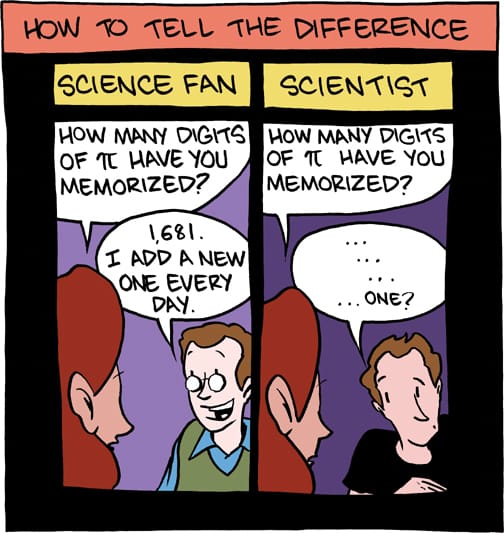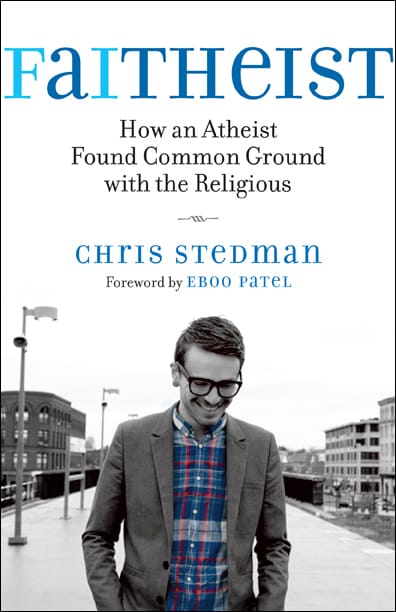But are you are scientist doe?
A shoutout to all so-called ‘science lovers’: go hard or go home.

It’s happened: geek is chic, nerds are sexy, and everyone and their dog is ready to debate with creationists. Like Brian Cox’s smiling, wistful face, science itself is increasingly entering the public consciousness. Every haunt of internet culture – Reddit, 4chan, your Facebook friends, etc. – discusses and valiantly defends science against the evils of false belief.
There’s a newer, more insidious evil arising, though: the many people who claim to “fucking love” science without the slightest clue of how science works. These are not mere naïve spectators interested in science – I have no qualms with them – but those who use their warped understanding of science to win arguments and further their own misguided agendas.
Now that scientists are cool, everyone wants to be one. Much like a priest wears robes to signal his being part of the clergy, scientific beliefs such as evolution, the benefits of nuclear power and even logical fallacies are held without understanding as a means of signalling being part of the “science” group. They’re wearing labcoats, but without a science to do in them.
“Correlation does not imply causation,” is a very useful phrase to scientists, but one that’s become co-opted without the critical “does not imply” clause in online arguments. All too often, any debate and discussion arising from the suggestion of a possible causal link is shot down with “correlation is not causation!” said with the smug self-righteousness of someone who’s memorised a few fallacies. I’ve even seen this said in response to peer-reviewed, fairly-tested and statistically analysed studies. These people don’t love science, in fact they’re damagingly anti-scientific. They just love to sound smart.
This is further shown in the worrying meme of dismissing scientific findings as being “obvious” – the idea that something which is “common sense” doesn’t need to be tested. Critically, common sense often turns out to be wrong, and any real scientist will know that there’s great value in accurately quantifying things which seem obvious. A recent article on Fox News and HuffPo, “12 Obvious Science Findings of 2012,” lists the common-sense “fact” that “smoking a lot of pot can make your mind fuzzy.” The paper, in fact, was a detailed cohort study, showing that marijuana use only causes irreversible brain damage if used regularly by under 18s, measuring change in IQ and other tests of brain function in several users. It’s unlikely the journalist ever read the full paper – they just wanted to show how much smarter they are than those silly, whimsical scientists by pointing out how obvious their results are.
With creationism as one of the most easily-falsified religious beliefs, evolution has become the biggest poster boy for science. Darwin’s travels, collection of evidence and formulation of a theory which has since been verified and improved upon by fossil data is an almost perfect example of the scientific method in action. Evolution by natural selection is GCSE-level science, but most people aren’t willing to learn even the basics – they just profess belief in evolution to signal their atheism. This leads to people laughably talking about how creatures “choose to evolve,” but more dangerously to racist beliefs supported by crackpot theories about how humans have “evolved” recently.
I love science so much that I’m dedicating my life to it and getting people interested in it, but subjective opinions seemingly backed up by logic and fact and the memorisation of afew intelligent-sounding phrases are not science. The work that people like Neil deGrasse Tyson and Brian Cox do is great – increasing public respect for and interest in science is as important as actually explaining the concepts. I’m not asking that all non-scientists understand science, just that they stop pretending to, and stop wearing the attire of scientists in order to win arguments on the internet.






